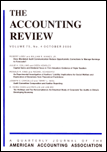
Accounting, also known as accountancy, is the measurement, processing, and communication of financial and non-financial information about economic entities such as businesses and corporations. Accounting, which has been called the "language of business", measures the results of an organization's economic activities and conveys this information to a variety of stakeholders, including investors, creditors, management, and regulators. Practitioners of accounting are known as accountants. The terms "accounting" and "financial reporting" are often used as synonyms.

A business school is a university-level institution that confers degrees in business administration or management. A business school may also be referred to as school of management, management school, school of business administration, or colloquially b-school or biz school. A business school teaches topics such as accounting, administration, business analytics, strategy, economics, entrepreneurship, finance, human resource management, management science, management information systems, international business, logistics, marketing, sales, operations management, organizational psychology, organizational behavior, public relations, research methods, real estate, and supply chain management among others.
A Master of Business Administration is a postgraduate degree focused on business administration. The core courses in an MBA program cover various areas of business administration such as accounting, applied statistics, human resources, business communication, business ethics, business law, strategic management, business strategy, finance, managerial economics, management, entrepreneurship, marketing, supply-chain management, and operations management in a manner most relevant to management analysis and strategy. It originated in the United States in the early 20th century when the country industrialized and companies sought scientific management.

Simon Business School is the business school of the University of Rochester. It is located on the university's River Campus in Rochester, New York. It was renamed after William E. Simon (1927–2000), the 63rd United States Secretary of the Treasury, in 1986. The school's present dean is Sevin Yeltekin.
The Walter A. Haas School of Business, also known as Berkeley Haas, is the business school of the University of California, Berkeley, a public research university in Berkeley, California. It was the first business school at a public university in the United States and is ranked among the best business schools in the world by The Economist, Financial Times, QS World University Rankings, U.S. News & World Report, and Bloomberg Businessweek.

Nottingham University Business School (NUBS) is the business school of the University of Nottingham, United Kingdom situated on the university's Jubilee Campus. The current dean of the business school is Professor Duncan Angwin.

Bocconi University is a private university in Milan, Italy. Bocconi provides education in the fields of economics, finance, law, management, political science, public administration and computer science. SDA Bocconi, the university's business school, offers MBA and Executive MBA programs.

The Strathclyde Business School (SBS) is one of four faculties forming the University of Strathclyde in Glasgow, Scotland. Founded in 1948, the school is located on Cathedral Street within the John Anderson campus of the university. It offers courses for business education and management development.

Earnings management, in accounting, is the act of intentionally influencing the process of financial reporting to obtain some private gain. Earnings management involves the alteration of financial reports to mislead stakeholders about the organization's underlying performance, or to "influence contractual outcomes that depend on reported accounting numbers."
The Samuel Curtis Johnson Graduate School of Management is the graduate business school in the SC Johnson College of Business at Cornell University, a private Ivy League university located in Ithaca, New York. It was founded in 1946 and renamed in 1984 after Samuel Curtis Johnson, founder of S.C. Johnson & Son, following his family's $20 million endowment gift to the school in his honor—at the time, the largest gift to any business school in the world.

The Joseph M. Katz Graduate School of Business is the graduate business school of the University of Pittsburgh located in Pittsburgh, Pennsylvania. Although business education had its origins at the university in 1907, the Graduate School of Business was established in 1960 from a merger of its predecessors, the School of Business Administration and the Graduate School of Retailing. It was renamed in 1987 after businessman and university alumnus benefactor Joseph Katz. The school offers a traditional, accelerated, part-time, business analytics, and executive Master of Business Administration (MBA) degrees as well as Master of Science degrees in Accounting, Business Analytics, Finance, Information Systems, Management, Marketing, Supply Chain Management and several Ph.D. programs in business. Katz is regularly ranked in the top 5% of Association to Advance Collegiate Schools of Business-accredited schools and in the top 0.3% of schools worldwide that grant business degrees.

Durham University Business School is the business school of Durham University and is located in Durham, England. Established in 1965, it holds triple accreditation. It is currently ranked between 7th and 67th in the world for its MBA and MSc programmes by the Financial Times, The Economist and the Expansión. The Global MBA is currently ranked 43rd in the world by the Financial Times.

The UNSW Business School at the University of New South Wales is a business school located in Sydney, Australia. The school offers 42 programs, including 26 undergraduate and 26 specialist master's degrees, as well as six MBA and executive programs through the Australian Graduate School of Management.
The School of Accountancy (SOA) at Brigham Young University is a department within the Marriott School of Management. The school offers one bachelor's degree and one master's degree.

The Accounting Review is a bimonthly peer-reviewed academic journal published by the American Accounting Association (AAA) that covers accounting with a scope encompassing any accounting-related subject and any research methodology. The Accounting Review is one of the oldest accounting journals, and recent studies considered it to be one of the leading academic journals in accounting.

Kozminski University is a private, non profit business school in Warsaw, Poland, and is considered to be "Poland’s highest rated private university". It was established in 1993 and named after Leon Koźmiński, a Polish professor of economics and entrepreneurship, and also the father of Andrzej Koźmiński, the founder and the first rector of the school. It is one of the top business schools in the world, contains the Central Eastern campus of ESCP as of 2015, and the only institution of higher education in Poland, holding the "triple accreditation ". Less than 1% of business education providers worldwide hold these three major international quality accreditations. The Financial Times named the university as the best business school in Poland and Central Europe.
Gilles Hilary is an accountant academic, working as a Professor of Accounting and Control at Georgetown University.
The Tepper School of Business is the business school of Carnegie Mellon University. It is located in the university's 140-acre (0.57 km2) campus in Pittsburgh, Pennsylvania.
Accounting research examines how accounting is used by individuals, organizations and government as well as the consequences that these practices have. Starting from the assumption that accounting both measures and makes visible certain economic events, accounting research has studied the roles of accounting in organizations and society and the consequences that these practices have for individuals, organizations, governments and capital markets. It encompasses a broad range of topics including financial accounting research, management accounting research, auditing research, capital market research, accountability research, social responsibility research and taxation research.










